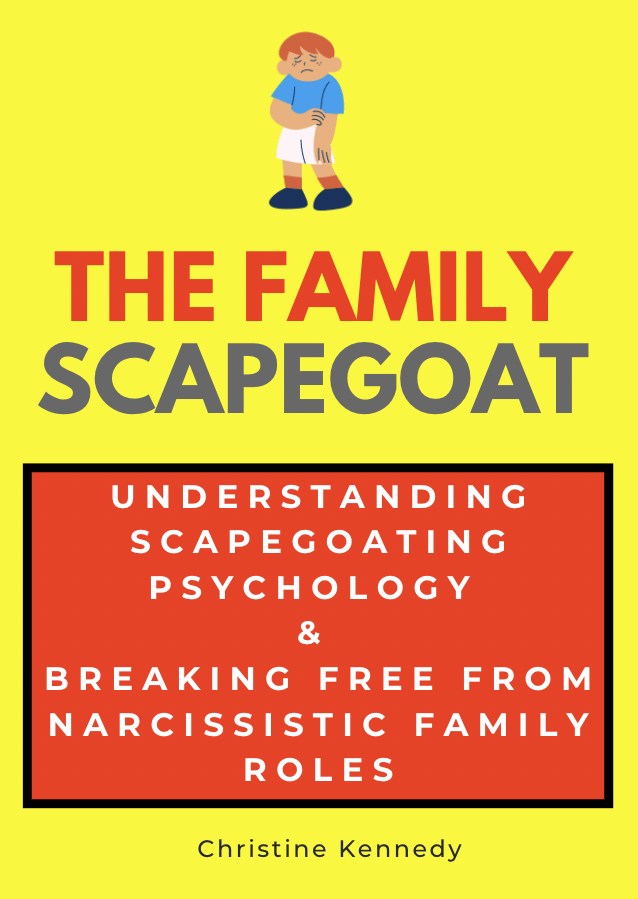Christine Kennedy’s book, “The Family Scapegoat – Understanding Scapegoating Psychology & Breaking Free from Narcissistic Family Roles,” is a powerful exploration into the turbulent and often painful experiences of individuals who are cast as scapegoats in narcissistic family dynamics.
Kennedy delves into the psychological underpinnings and social mechanisms that contribute to this phenomenon, offering a beacon of hope and a roadmap to recovery for its victims.
Table of Contents
Overview
The book begins with an extensive look at the characteristics of narcissistic personality disorder (NPD) – or simply narcissistic tendencies without diagnostic labels –and its manifestations within family systems.
It carefully outlines the roles that family members are forced into, with a particular focus on the scapegoat.
Kennedy discusses not only the psychological impact of such roles but also offers practical advice and therapeutic strategies to heal and reclaim one’s life from the shadows of scapegoating.
Various forms of narcissism are covered (overt, covert), along with traits, behaviors, and tactics that are thorough and well-explained.
Anybody who has been victimized by narcissistic abuse will related heavily to what’s being said.
Features
Kennedy’s work is distinguished by its comprehensive approach – it blends theoretical insights with practical recovery strategies – and comes in at over 50,000 words.
Each chapter is structured to first explain the concepts and then transition into methods of application, aiding readers in both understanding and action.
Readers get a well-rounded understanding of narcissism and its effects on family dynamics. This not only enriches the reader’s comprehension but also tailors to different learning styles and backgrounds.
Strengths
One of the major strengths of the book is its accessibility. The language is clear and direct, free from jargon, which makes it approachable for a wide audience, including those without a background in psychology.
Moreover, Kennedy’s empathetic writing style helps in validating the experiences of scapegoats, offering them solace and understanding which they may have found lacking in their immediate environments.
Weaknesses
It could benefit from a broader exploration of cultural variations in narcissistic abuse. The dynamics within families can vastly differ across cultural contexts, and a more detailed examination of these differences could enhance the universality and applicability of the advice provided.
Overall
Overall, Kennedy knocks the topic out of the park.
It serves as an essential resource for understanding, coping, and healing from the unique challenges posed by narcissistic abuse.
While slightly more depth into cultural considerations could be added, this does little to diminish the overall value of the book.
It stands as a strong testament to the resilience of scapegoats and provides a hopeful pathway to reclaiming and embracing one’s true self.
Kennedy’s “The Family Scapegoat” is a must-read for anyone looking to recognize, escape, and recover from manipulative relationships and emotional abuse, especially for those who have been marginalized as scapegoats.
Overall Rating: 4.8/5


